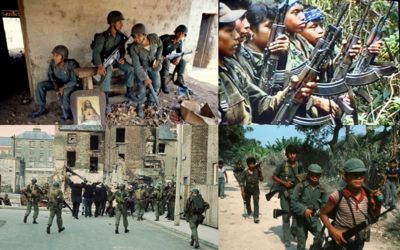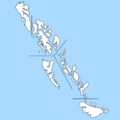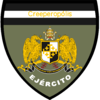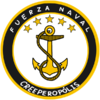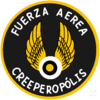San Carlos Islands Crisis
The San Carlos Islands Crisis (Creeperian – Creeperian Ծրիսիս դե լաս'Իսլաս Սան Ծարլոս; Creeperian – Iberic: Crisis de las'Islas San Carlos) is an ongoing armed conflict between the Creeperian government of the San Carlos Islands and various far-left, non-partisan, and far-right militant groups. The conflict is the only ongoing conflict in Ostlandet and it is a part of the Creeperian Conflicts.
The conflict began on 12 October 1981, the symbolic 600th anniversary of the landing of Creeperian Admiral and explorer Cristóbal Colón Cámarillo on Norental, when the Juan Horacio Palafox Mendoza Revolutionary Council (CR-JHPM) was formed and declared their movement for the independence of the San Carlos Islands. The CR–JHPM was a non-partisan coalition of separatist groups and consisted of the Orisla Liberation Commandos (CLO), 12 October Movement (M–12–O), and the San Carlosan Independence Movement (MISC). Later in 1981, the far-left Kapahu Alana Revolutionary Movement (MRKA) was formed in Esclaveta and declared independence for the island and the Natives of the island, and in 1982, the far-right Norental-Esclaveta-Pescante-Orisla-Colón Front (Frente NEPOC) was formed and declared the superiority of the Creeperian race over the islands' Natives. Frente NEPOC was isolated to the island of Cámarillo and conducted urban terrorist attacks, while the CR-JHPM and MRKA were located in the remaining islands and committed mostly guerrilla attacks. Frente NEPOC ceased operations in 1994 after increased Creeperian Army operations against Frente NEPOC activities while the CR–JHPM and MRKA came to an agreement in the Ankarabad Accords on 13 March 1995.
A resurgence of war began on 17 August 2003 when the MRKA remobilized in the wake of the 2003 Creeperian coup d'état and the establishment of the Romerist Military Junta, which they believed would reject the 1995 Ankarabad Accords and restart the war. The Romerist Military Junta subsequently did denounce the parts of the accords which dealt with Esclaveta on 19 August 2003. Since then, the conflict has been a low-level insurgency with a guerrilla attack occurring on Esclaveta around 4 to 5 times per year. During the low-level insurgency, two new groups formed, the Native Revolutionary Armed Forces of the South (FAR-NS) in 2004, which continues to operate, and the Native Revolutionary Armed Forces of Pescante (FAR-NP) in 2007, which later ceased operations in 2010. FAR-NP was an affiliate of the MRKA throughout its existence and FAR-NS continued to affiliate with the MRKA.
Contents
Background
Main phase
1981–1984
1985–1989
1990–1995
Ankarabad Accords
Inter-war period
Low-level insurgency
2003–2009
2010–2017
2017–present
On 6 March 2022, three gunmen of the MRKA opened fire on civilians in southern Anadesa, injuring six the process.[1] The three gunmen were later arrested on 7 April 2022 and each was sentenced to serve 14 life sentences.[2]
Impact
Political repercussions
Economic consequences
Foreign support and intervention
Foreign relations
Casualties
See also
Notes
References
- ↑ Jiménez Castro, Carlos (6 March 2022). "Տիրոտեո դել ՄՐԿԱ են Անադեսա Հիերե ա Սեիս" [MRKA Shooting in Anadesa Injures 6]. gacetacreeperiano.org.cr (in Creeperian). Gaceta Creeperiano. Retrieved 8 April 2022.CS1 maint: unrecognized language (link)
- ↑ Tejón Galdámez, Sergio (7 April 2022). "Դետիենեն ա Տրես Իմպլիծադոս են Տիրոտեո են Մարճա են Անադեսա" [Three Men Involved in Shooting in March in Anadesa Arrested]. capitangeneralisc.gob.cr (in Creeperian). Government of the San Carlos Islands. Retrieved 8 April 2022.CS1 maint: unrecognized language (link)
